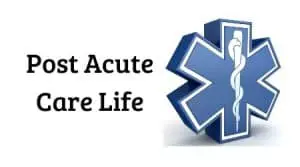When providers and nurses start working in the nursing home setting, they frequently ask what common medications are prescribed to the elderly?
Just like most health care settings, common medications appear frequently. If you work for a GI practice you will start to see similarities in medication prescribing habits. The same goes for nursing homes.
There may be some differences based on regions or by the marketing efforts of the pharmaceutical companies. However, they will usually be from the same medication class.
The following list is not a definitive list and is only meant to be used as a guide. There are many drug guides that can better assist you in learning about the medications.
Covid-19 added a couple of medications to the list. Prescribes will often prescribe steroids such as prednisone and methylprednisolone. Azithromycin has been frequently prescribed when they are having respiratory symptoms requiring an antibiotic.
Symbicort or other inhaled steroid combo is given with patients having respiratory issues with Covid-19. Nursing homes have moved away from nebulizers such as Albuterol and Duonebs and switched to MDI devices for the delivery of medication.
There was a period where Plaquenil/hydroxychloroquine sulfate was prescribed for the residents. However, this medication isn’t used commonly for the treatment of coronavirus.
If you are a nurse looking for a great drug guide, Amazon carries the Nursing 2022 Drug handbook. This is your best source for information on specific medications.
Commonly seen medications in Nursing home
Ace Inhibitors:
- Lisinopril
Alpha Agonist:
- Clonidine
Antibiotics:
- Amoxicillin
- Augmentin
- Azithromycin
- Bactrim
- Ceftriaxone
- Ciprofloxacin
- Gentamycin
- Levaquin
- Nitrofurantoin
- Vancomycin
- Cefpodoxime proxetil (Vantin)
Anticoagulants:
- Coumadin (warfarin)
- Enoxaparin (Lovenox)
- Heparin
- Rivaroxaban (Xarelto)
Antidepressants:
- Bupropion (Wellbutrin)
- Citalopram
- Mirtazapine (Remeron)
SSRI:
- Fluoxetine (Prozac)
- Sertraline (Zoloft)
Antifungal:
- Fluconazole (Diflucan)
- Nystatin swish and swallow
Antiparasitic:
- Metronidazole (Flagyl)
Antipsychotics:
- Risperidone (Risperdal)
- Quetiapine (Seroquel)
- Olanzapine (Zyprexa)
Anxiolytics (Benzodiazepine):
- Alprazolam (Xanax)
- Clonazepam (Klonopin)
- Diazepam (Valium)
Antiviral:
- Acyclovir (Zovirax)
- Valacyclovir (Valtrex)
Cardiac Medications:
Beta-blockers:
- Coreg
- Metoprolol Tartrate and succinate
Calcium Channel Blockers:
- Norvasc
Antiarrhythmics:
- Cardizem
- Digoxin
- Isosorbide mononitrate (angina)
- Nitroglycerin
- Plavix (Acute Coronary syndrome and Thrombotic prevention)
Dementia Medications:
- Namenda
- Exelon
Diabetic Medications:
- Basaglar
- Humalog
- Januvia
- Humalog
- Lantus
- Novolog
- Metformin/Glucophage (Biguanides)
- Tresiba
- Trulicity
Diuretics:
- Lasix
- Spironolactone
- Zaroxalyn
GI medications:
- Lubiprostone (Amitiza)
- Bisacodyl suppositories
- Colace
- Fleets enemas
- Linzess (Linaclotide)
- Lactulose
- Ondansetron (Zofran)
- Ranitidine (H2 Blocker)
- Senna
Gout Medications:
- Allopurinol
- Colchicine
Insomnia medications:
- GABA/Benzodiazepine: Ambien (zolpidem0
- Benzodiazepine: Restoril
- Melatonin
Kidney Medications:
- Renagel
- Phoslo
Muscle relaxers:
- Baclofen
- Flexeril
- Tizanidine
Neurological medications:
- Gabapentin (seizures, postherpetic neuralgia, neuropathic pain, fibromyalgia)
- Pregabalin (lyrica)
Nonsteroidal anti-inflammatory medications:
- Celebrex
- Ibuprofen
Opioids:
- Fentanyl
- Hydrocodone/tylenol (Norco)
- Hydromorphone
- Oxycodone
- Tramadol (MU opioid receptor)
- MS Contin
Parkinson’s meds:
- Carbidopa levodopa
Proton Pump Inhibitors:
- Omeprazole
- Pantoprazole
- Dexilant
Respiratory Medications:
- Albuterol nebs/HFA,
- Beta-2 Agonist, SABAs, Muscarinic Antagonist: Duoneb
- Prednisone
- Tiotropium (Spiriva)
Seizure Medications:
- Vimpat
- Dilantin
- Levetiracetam (Keppra)
Skin:
- Sarna lotion
- Triamcinolone
Statins:
- Atorvastatin
- Rosuvastatin
Thyroid Medications:
- Levothyroxine
- Synthroid
Urology Medications:
- Oxybutynin (antispasmodics)
OTC Medications:
- Potassium
- Ferrous sulfate
- Natural Tears eyedrops
- Tylenol
- Aspirin
- Mucinex
- Bengay
- Claritin
- Vitamin B12
Tips for learning medications
Unfortunately, learning the medications used in nursing homes requires memorization and repetition. Memorization and repetition help you learn what the meds are used for and the class they belong to. This will help when you run into other meds in the same class. You will have a general idea of adverse effects and contraindications.
Try to learn the basics and then look up the meds as you go to fine-tune your learning. Some people like to write the medications on flashcards with the drug name on one side and the basis of the medication on the other. Include the indication for the medication and then the class of medication.
If you are only able to learn one, focus on the generic version of the medication. Eventually, the medication will lose its patent and be sold in its generic form.
“Frequently Prescribed Medications: Drugs You Need to Know“ is a book that will give you tips and tricks for learning medications that are frequently used. This comprehensive resource provides clear information for the drugs that are commonly utilized in clinical practice. It even includes over-the-counter, and natural products.
Conclusion
This list of medications is not meant to be an exhaustive list of medications. There will be many medications that providers prescribe that are not included. However, this list should give a general idea of what is commonly prescribed in the nursing home setting.
When you start working in the nursing home, take a few minutes to write down the medications on a few patients and look them up. The more you do this, the easier it will get to learn the medications and why they are used for the resident.
If you are a nurse looking for more information, check out the website www.nrsng.com.

